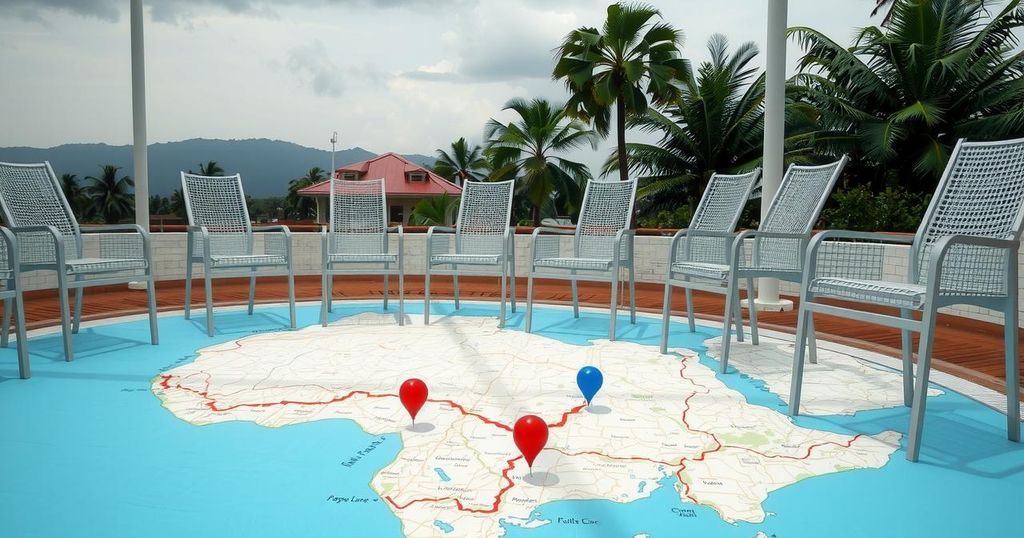The peace summit planned for Sunday to discuss conflicts in eastern DRC was cancelled due to the Rwandan delegation’s refusal to attend, following unsuccessful ministerial talks. The summit was intended to be part of the Luanda Process, aimed at stabilizing the area affected by the M23 rebel group, which the DRC accuses Rwanda of supporting.
The peace summit intended to address the ongoing conflicts in the eastern Democratic Republic of the Congo (DRC), scheduled for Sunday, has been cancelled. The summit was to be hosted by Angolan President Joao Lourenco, with DRC President Felix Tshisekedi and Rwandan President Paul Kagame set to participate. However, the DRC Presidency reported that the Rwandan delegation declined to attend, prompting the cancellation of the meeting. President Tshisekedi had already arrived in Luanda for discussions with President Lourenco.
Rwanda’s Ministry of Foreign Affairs stated that the prior ministerial discussions failed to yield a consensus on initiating direct negotiations with the Congolese rebel group M23. Consequently, they noted, “This summit would therefore not have resulted in an agreement,” emphasizing that postponing the summit could facilitate further dialogue between the M23 and the DRC authorities.
The meeting was part of the Luanda Process, a peace initiative approved by the African Union in 2022, aiming to bolster stabilization in the eastern DRC, which continues to experience severe instability due to the M23 rebel group. The Angolan Presidency announced that the summit had been “indefinitely postponed at the request of one of the parties.” The DRC government has accused Rwanda of military support to the M23, an allegation that Rwanda vehemently denies, claiming instead that the DRC military collaborates with the Democratic Forces for the Liberation of Rwanda, a Rwandan rebel group.
The eastern Democratic Republic of the Congo has faced prolonged conflict and instability, largely exacerbated by tensions between the DRC and Rwanda over the presence of the M23 rebel group. The Luanda Process, initiated in 2022, aims to address these conflicts through multi-national dialogue and peace-building strategies. The parties involved have previously struggled to find common ground, complicating efforts to stabilize the region and advance peace initiatives endorsed by the African Union.
In summary, the cancellation of the peace summit represents a significant setback in the ongoing efforts to resolve the conflicts in eastern DRC. The refusal of the Rwandan delegation to participate highlights the challenges of achieving consensus among the involved nations. Without direct negotiations with the M23, the path towards stabilization remains uncertain as both the DRC and Rwanda continue to accuse each other of supporting rebel groups that threaten regional peace.
Original Source: www.chinadailyasia.com






